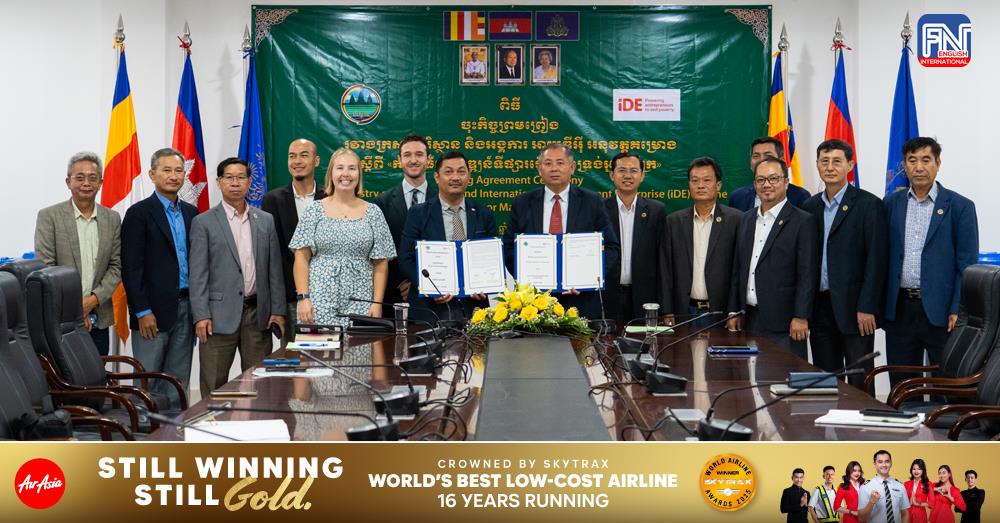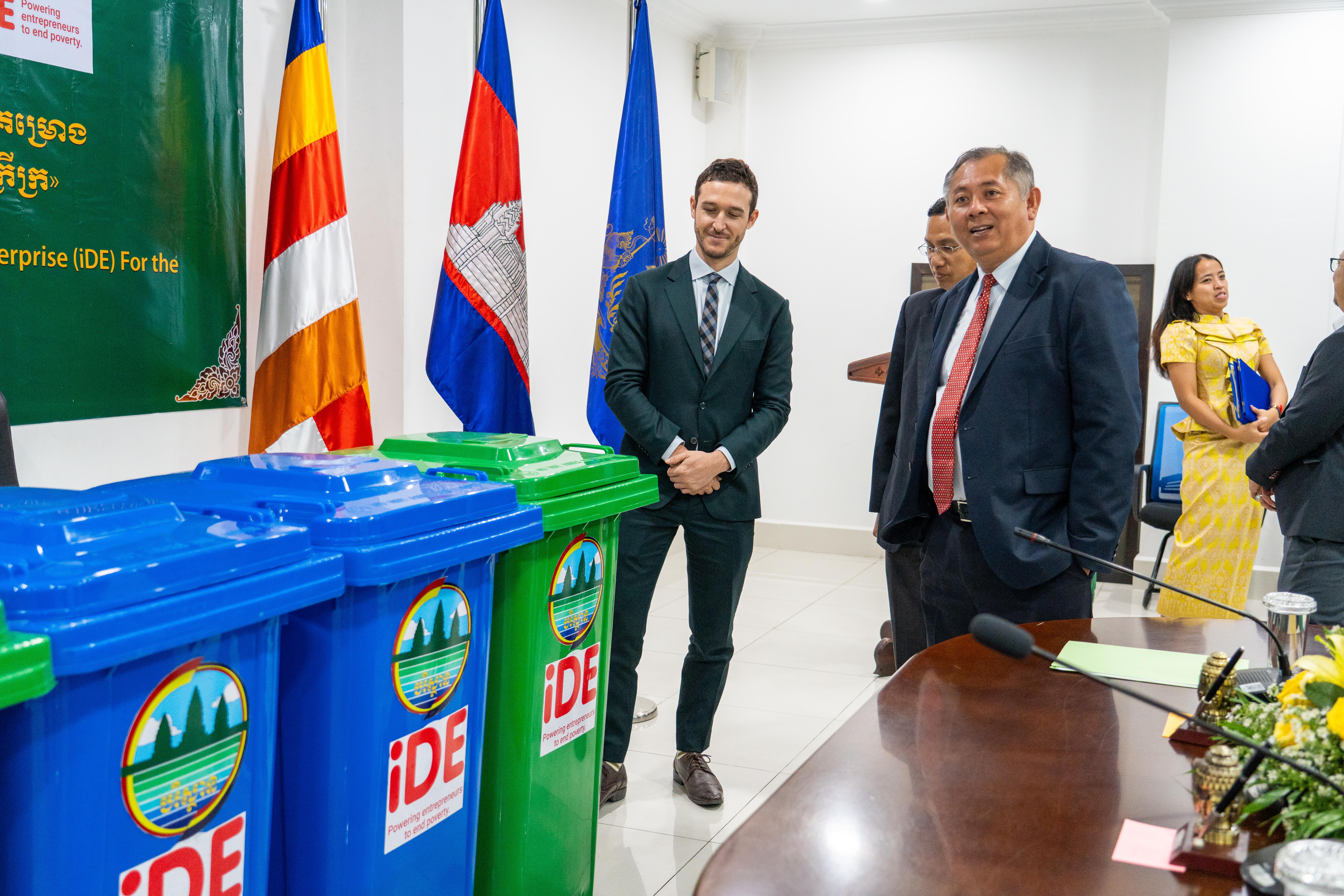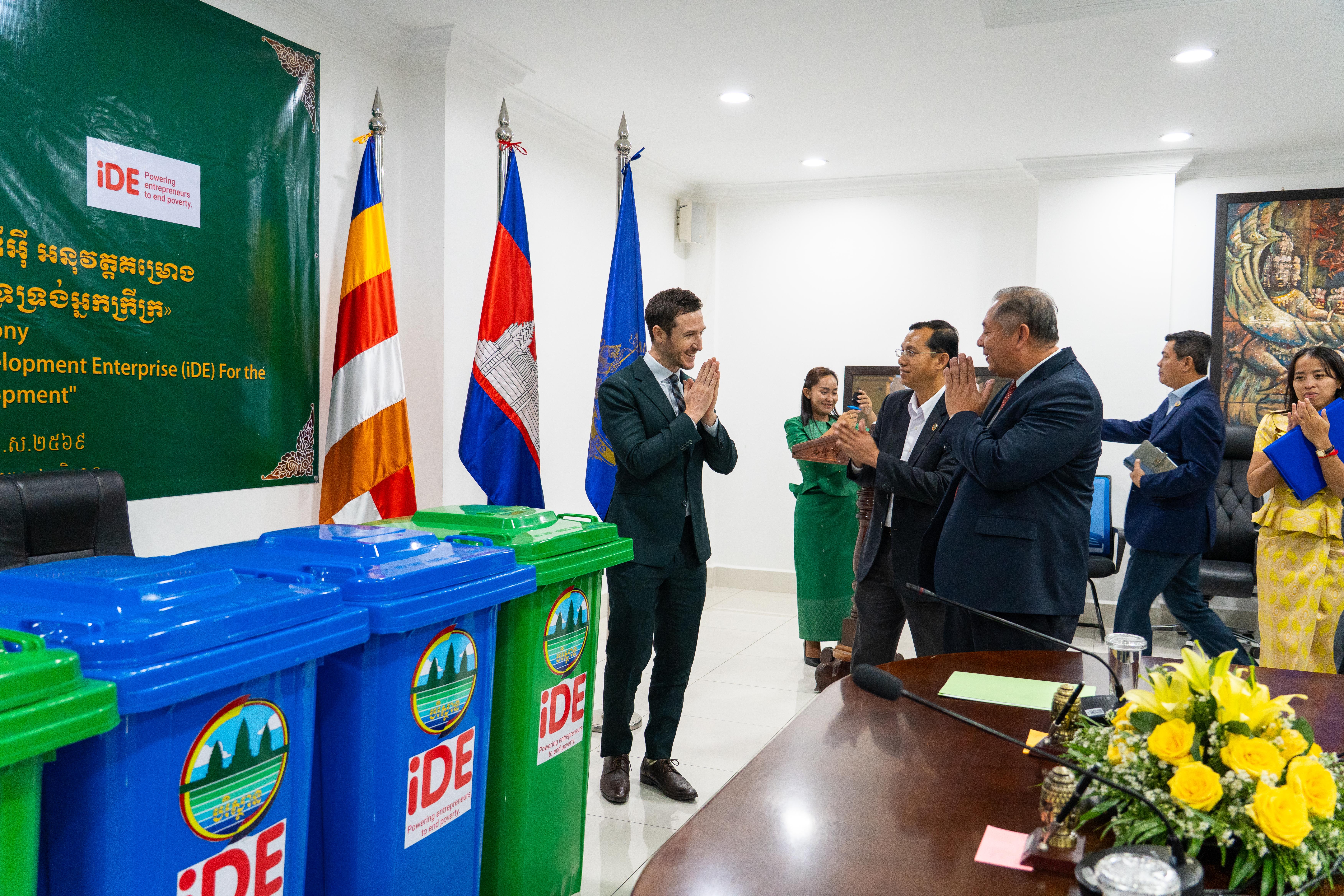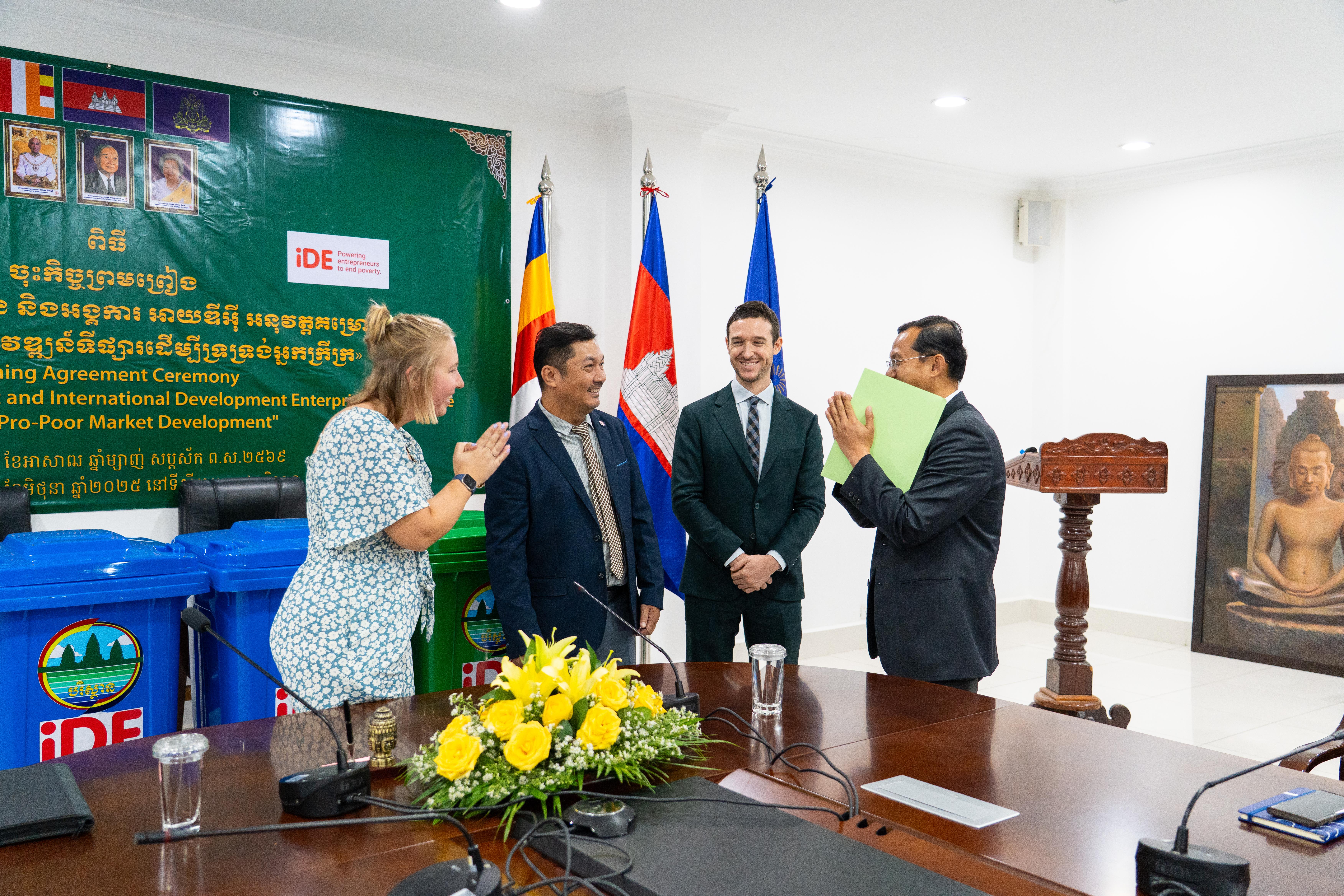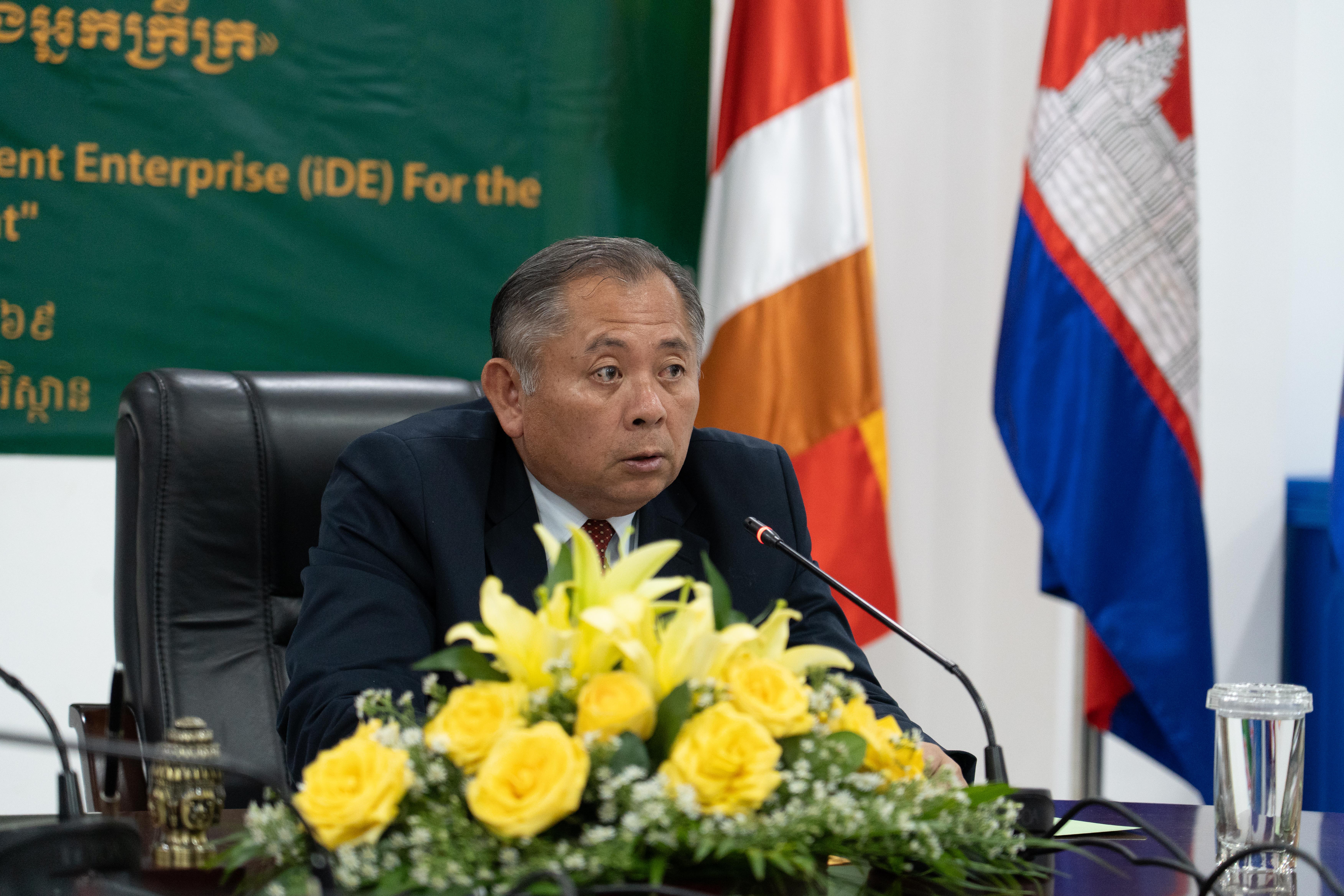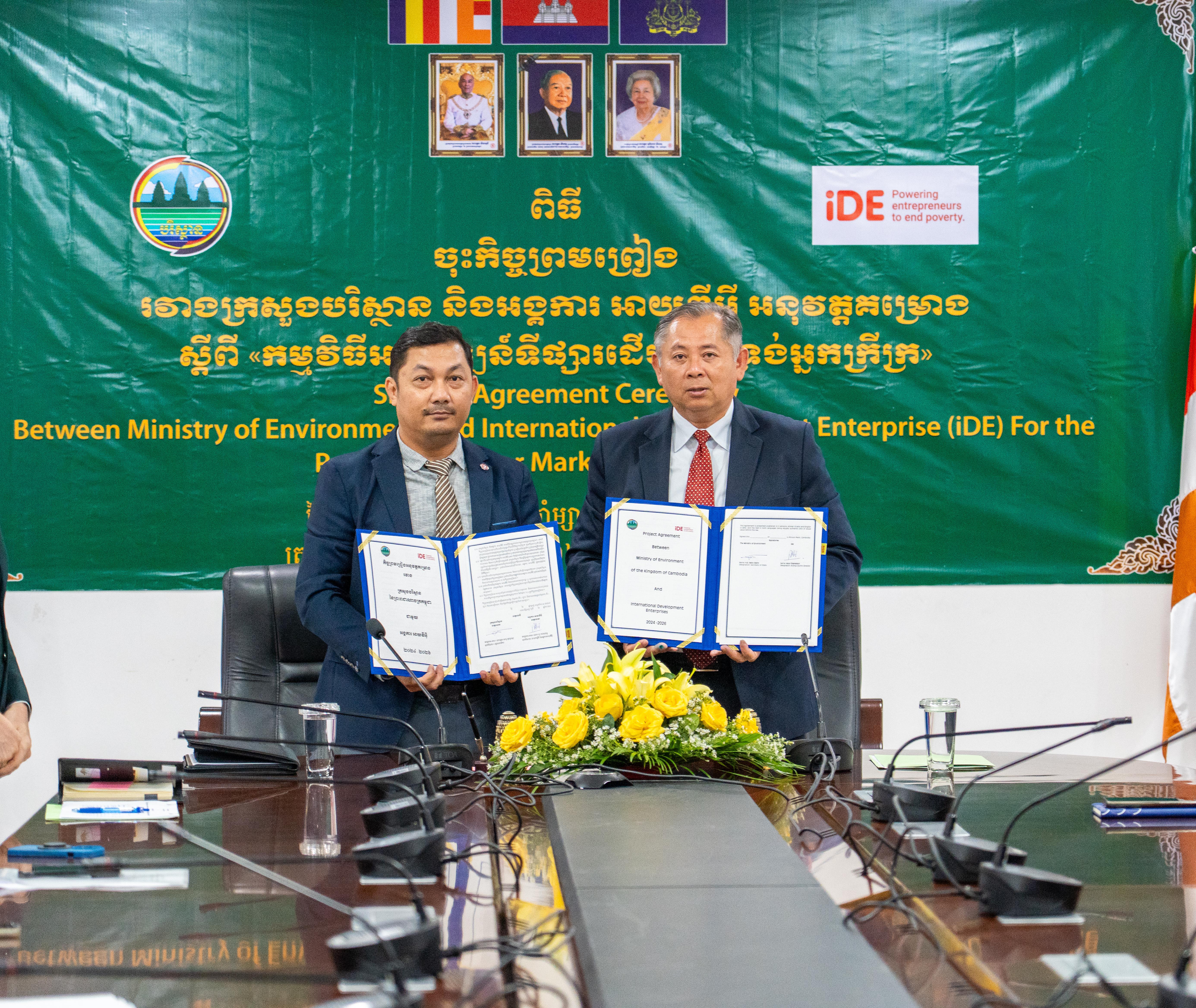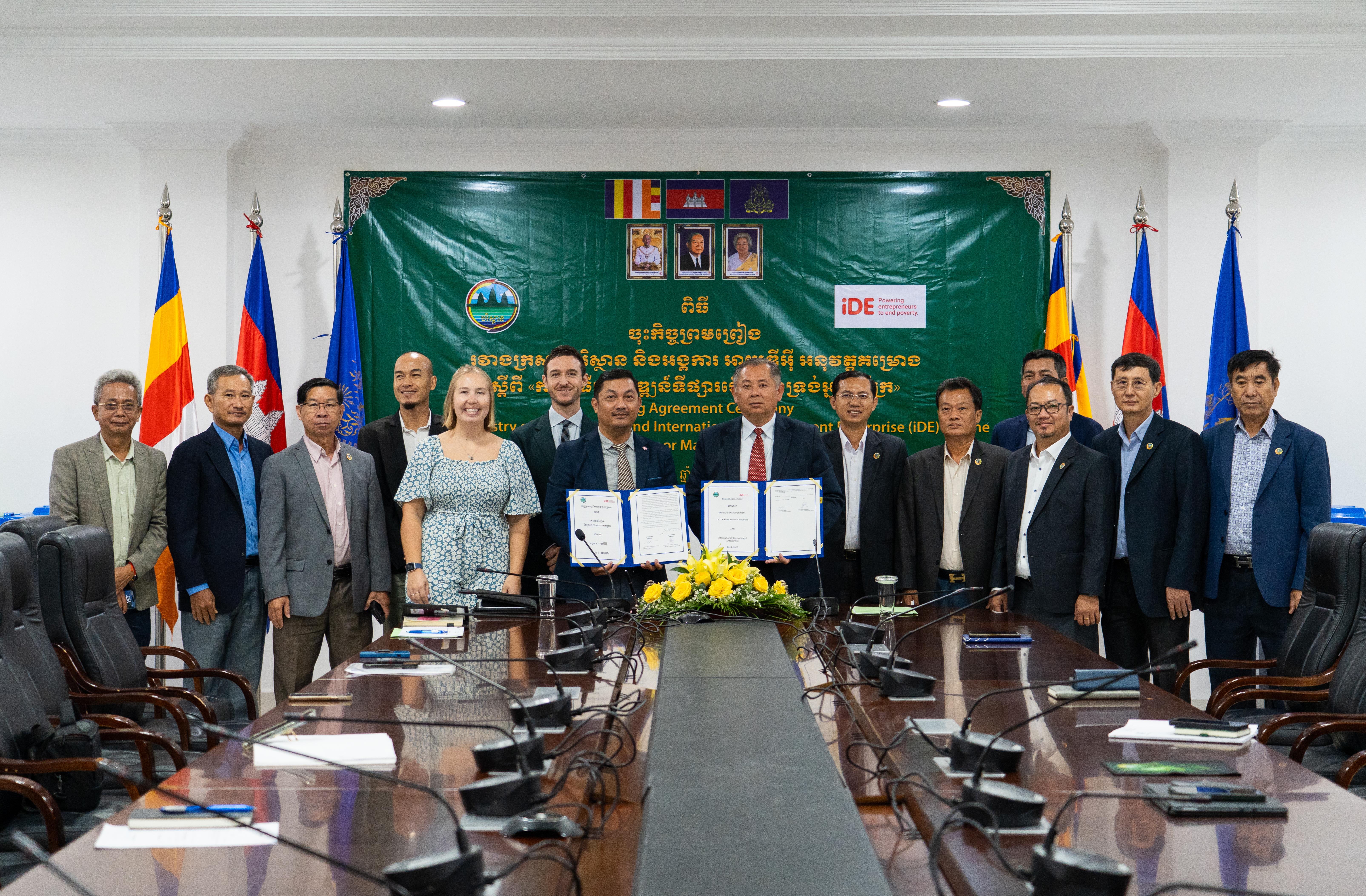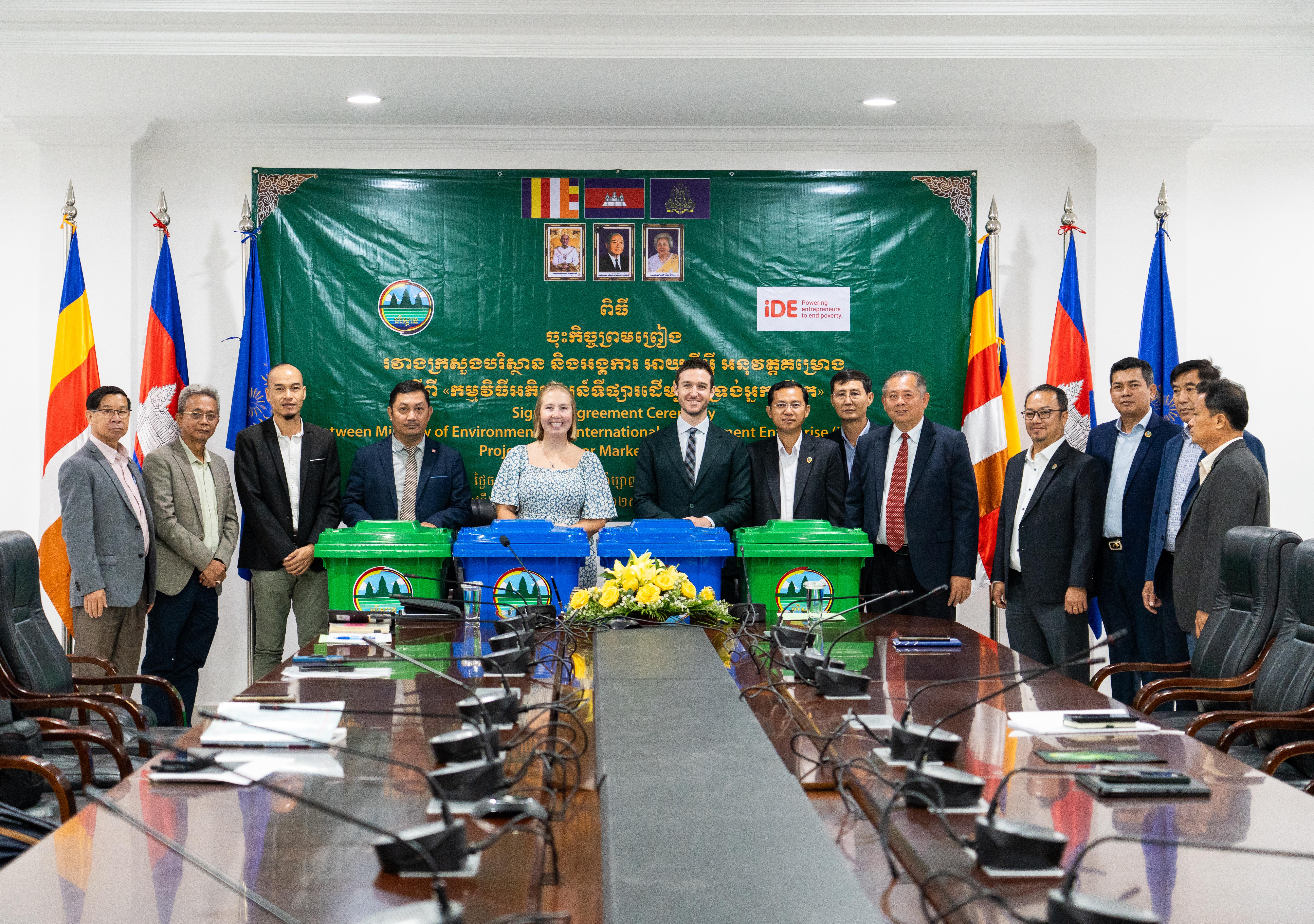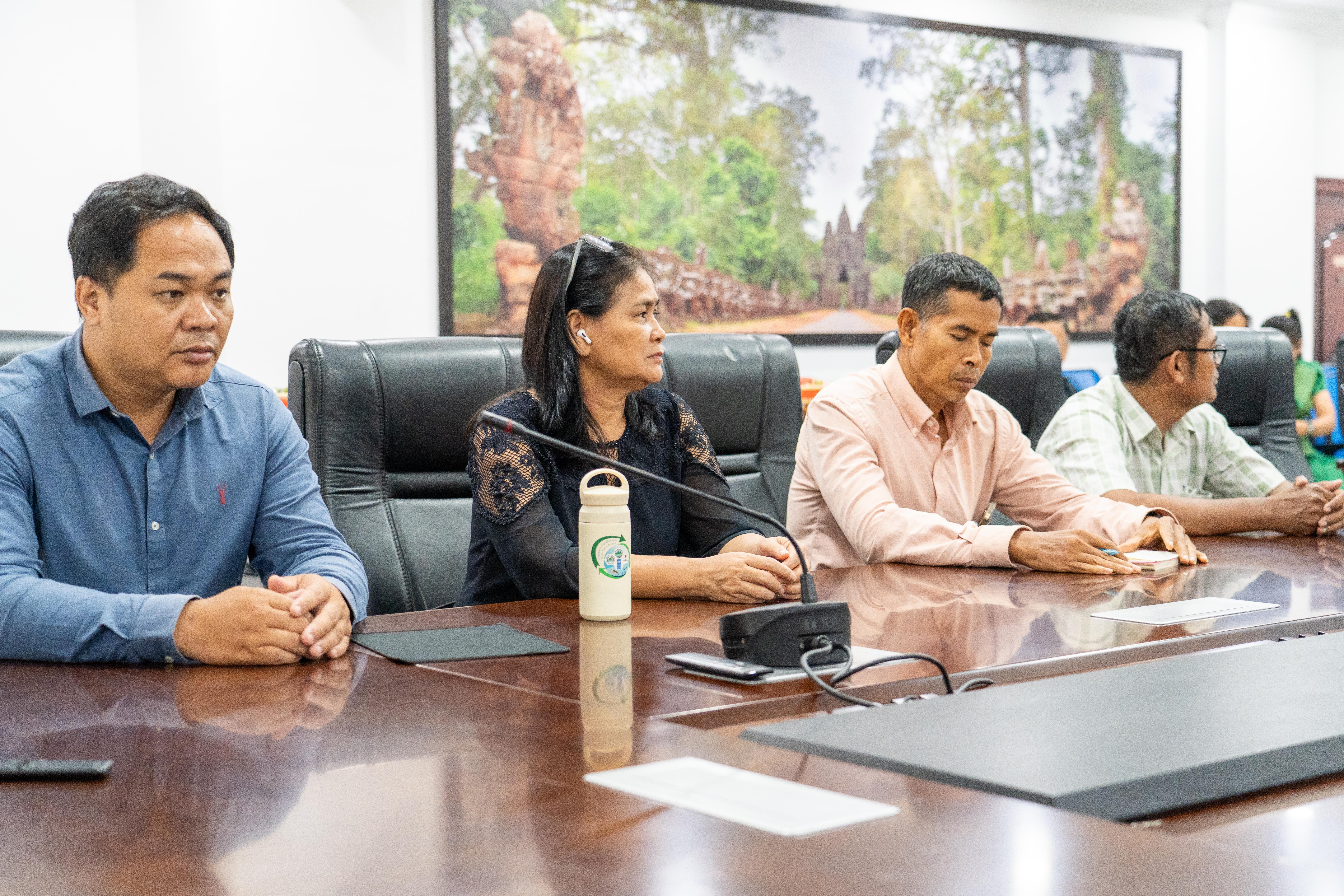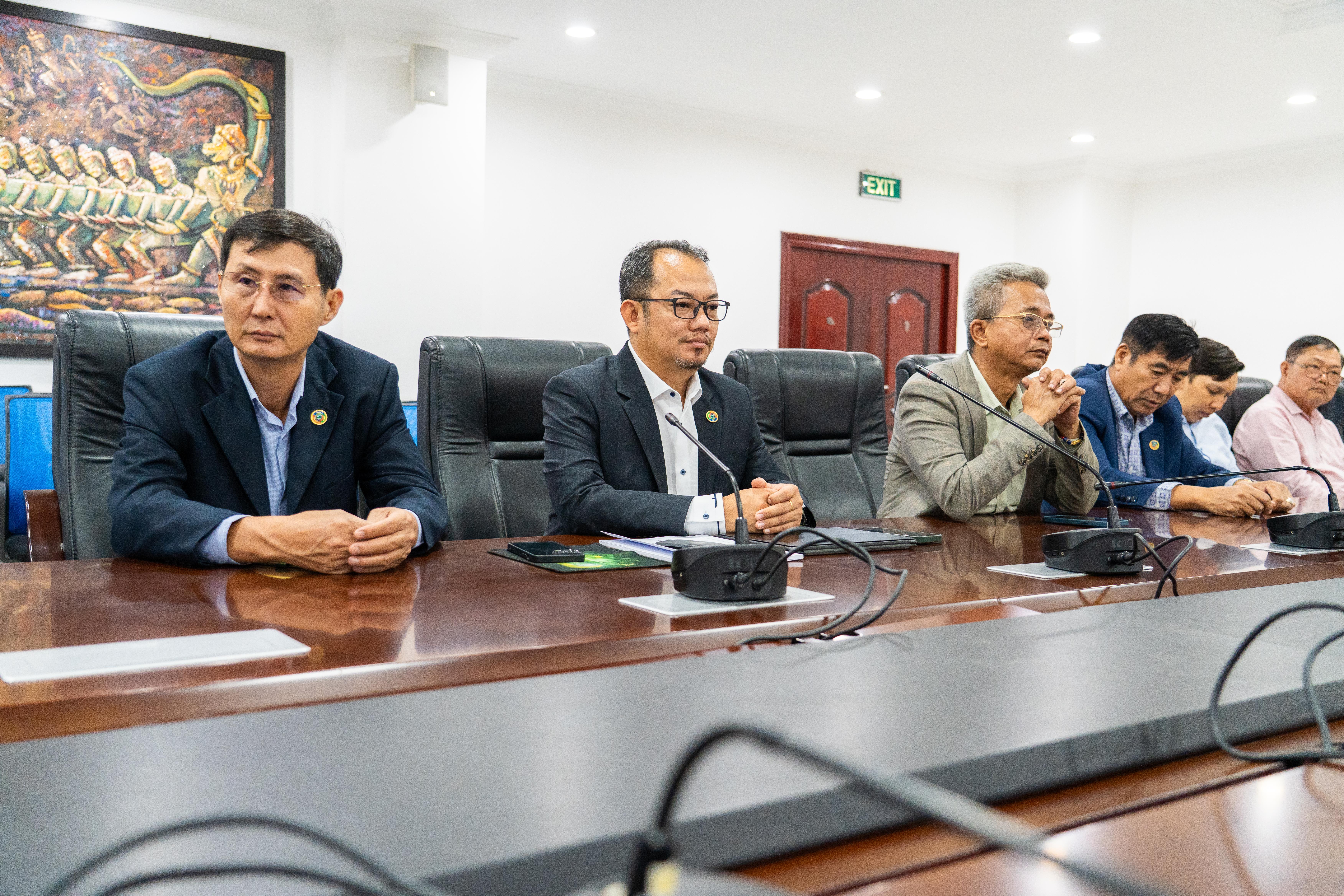(Phnom Penh): On 30 June 2025, iDE Cambodia and the Ministry of Environment (MoE) officially signed a project agreement to expand solid waste management services in rural areas. The agreement was signed by Sabo Ojano, Secretary of State of the Ministry of Environment, on behalf of Eang Sophalleth, Minister of Environment, and Hour Chansokun, Officer-in-Charge of iDE Cambodia. This partnership aims to tackle pressing environmental and public health challenges, while creating economic opportunities and protecting Cambodia’s natural resources.
The newly established partnership presents a framework for collaboration to scale sustainable waste management solutions in underserved, rural communities, aligning with the Environmental Protection Strategic Plan 2024–2028 and Cambodia’s National Carbon Neutral Strategy Framework.
“This agreement reflects our shared commitment to environmentally sound waste management that improves health, livelihoods, and dignity for Cambodian families, while safeguarding ecosystems,” said Tyler Kozole, Water, Sanitation and Hygiene Program Director, at iDE Cambodia.
The Ministry of Environment leads national efforts in environmental protection and resource conservation. Its campaigns—such as “Today I Don’t Use Plastic Bag,” “Clean Cambodia, Khmer Can Do,” and “National Roads Without Plastic”—have helped reduce plastic waste and litter in the country. Through this partnership, iDE will support the expansion of these successes into rural areas.
Through its Waste Management Market Acceleration (WaMA) project, iDE has capacitated rural waste service providers like Lam Samnang in Boribour District, Kampong Chhnang province. In just six months, Samnang expanded his weekly waste collection service from a few hundred to over 2,000 households and businesses—a 400% increase. His efforts help prevent plastic waste from entering the Tonle Sap, a vital biosphere supporting over 3 million Cambodians.
The project has proven that there is strong demand for waste collection services in rural areas, with 70% of rural residents willing to pay 10,000 Riel per month for weekly waste collection services. With the majority of rural Cambodians still lacking waste collection access, the MoU lays the foundation for a scalable model nationwide, filling a critical service delivery gap in rural areas.
Operating in Cambodia since 1994, iDE designs all its projects on a foundation of market-based, socially inclusive principles. These projects help build individual and family-run businesses, as well as social enterprises that deliver social and economic benefits to low-income households—enabling them to increase production, boost income, and improve their quality of life and environmental health. Its initiatives span climate-smart and regenerative agriculture, alternatives to plastic use, and clean cooking solutions.
“At iDE, we take a systems-wide approach—from waste management and sanitation to clean energy and climate-smart agriculture—to improve both human and ecosystem health,” Kozole added.
=FRESH NEWS
